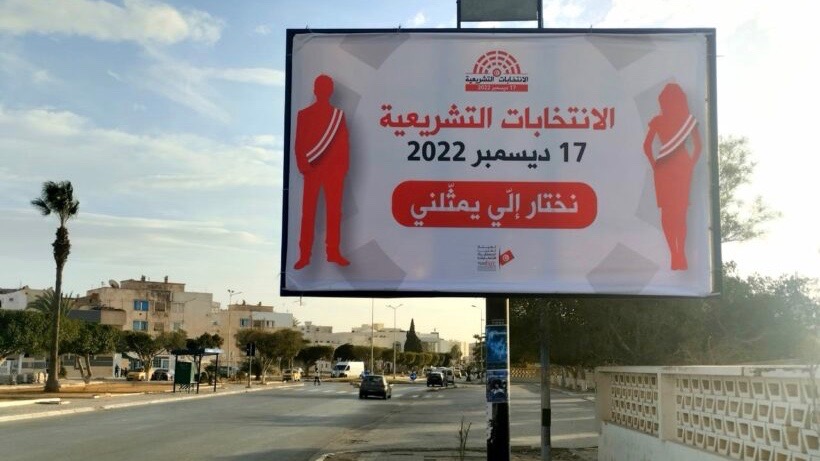On Saturday, December 17, Tunisia will hold its first legislative elections since President Kais Saied sacked the previous elected government in July last year. The elections will be held under a new constitution adopted in July this year with participation from less than one third of the electorate, and a new electoral law promulgated in September.
The elections face an almost unanimous call for boycott by the country’s established political parties, a majority of whom were part of the last parliament. That parliament was dissolved in March this year after having been suspended since July 2021.
The recently adopted constitution establishes a bicameral parliament in Tunisia. The upper house is called the National Assembly of Regions and Districts (NARD). Its members will be elected indirectly by the regional councils whenever their elections are held. The elections on December 17 are for the lower house of the parliament, called the Assembly of the Representatives of the People (ARP).
The elections will be held under a new electoral law enacted on September 15 by President Saied. The law has drawn strong criticism from political parties in the country as it abandons proportional representation as well as affirmative measures for women, young, and disabled sections of society. It also abolishes public funding for electioneering. This is expected to substantially reduce the representation of women and youth in the country’s parliament, and increase the role played by private capital.
As per the new law, 161 members of ARP will be elected on the basis of a two-round majoritarian system. This means that if in a constituency no candidate secures a majority of all votes cast, the two candidates who secured the most votes will face off in a second round within two weeks to decide the winner.
Elections are illegitimate
The political parties boycotting the upcoming elections have alleged that the new political process is illegitimate and an attempt to seek validity for Saied’s authoritarian policies. They have termed Said’s dismissal of the government in July 2021 a coup and have been campaigning for Saied’s removal.
The Workers’ Party of Tunisia, which has created an alliance of four left parties to oppose Saied’s policies, issued a statement on December 9 asking for the complete boycott of the elections. They claimed that President Saied was carrying out a “populist and chaotic project” in the country and that “after passing the constitution which provides him absolute autocracy he [was] preparing to get a figurehead council” for his followers through the upcoming elections.
The constitution adopted in July has been criticized as autocratic as it allows the president a great deal of power over the parliament and other national institutions.
Calls for boycott have also been issued by the National Salvation Front (NSF). This is a coalition led by the largest party in the dissolved parliament, Ennahda. The NSF held a large protest on Saturday, December 10, opposing the elections and claiming that the December 17 election was an attempt by Saied to manufacture “legitimacy” for his “coup.”
Speaking at the protests, Ahmed Chebi, president of the NSF, claimed that President Saied, “who once claimed to have popular legitimacy is now isolated within his country.”
The protesters shouted slogans calling for Saied’s ouster and an end to his “dictatorship.” They also called for the establishment of democracy in the country.
Claiming that “the result of this election is already known,” the president of the right-wing Free Destourian Party, Abir Moussi, declared last week that the election was neither constitutional nor valid under international law, and threatened to sue all who participated in it. She asked the Tunisian people and international community to boycott the elections as well.
The Socialist Party of Tunisia also issued a boycott call last week.
Calls for boycott have already had an impact on the elections, as not enough candidates have filed nominations. There are also a very small number of female candidates. This lack of popular enthusiasm has also been attributed to the curtailment of parliamentary powers under the new constitution.
Similar boycott calls were issued by Tunisian political parties in July on the occasion of the referendum on the new constitution. Though the Saied government went ahead with the implementation of the constitution, the referendum saw a record low participation of just around 30% across all electorates in the country.





